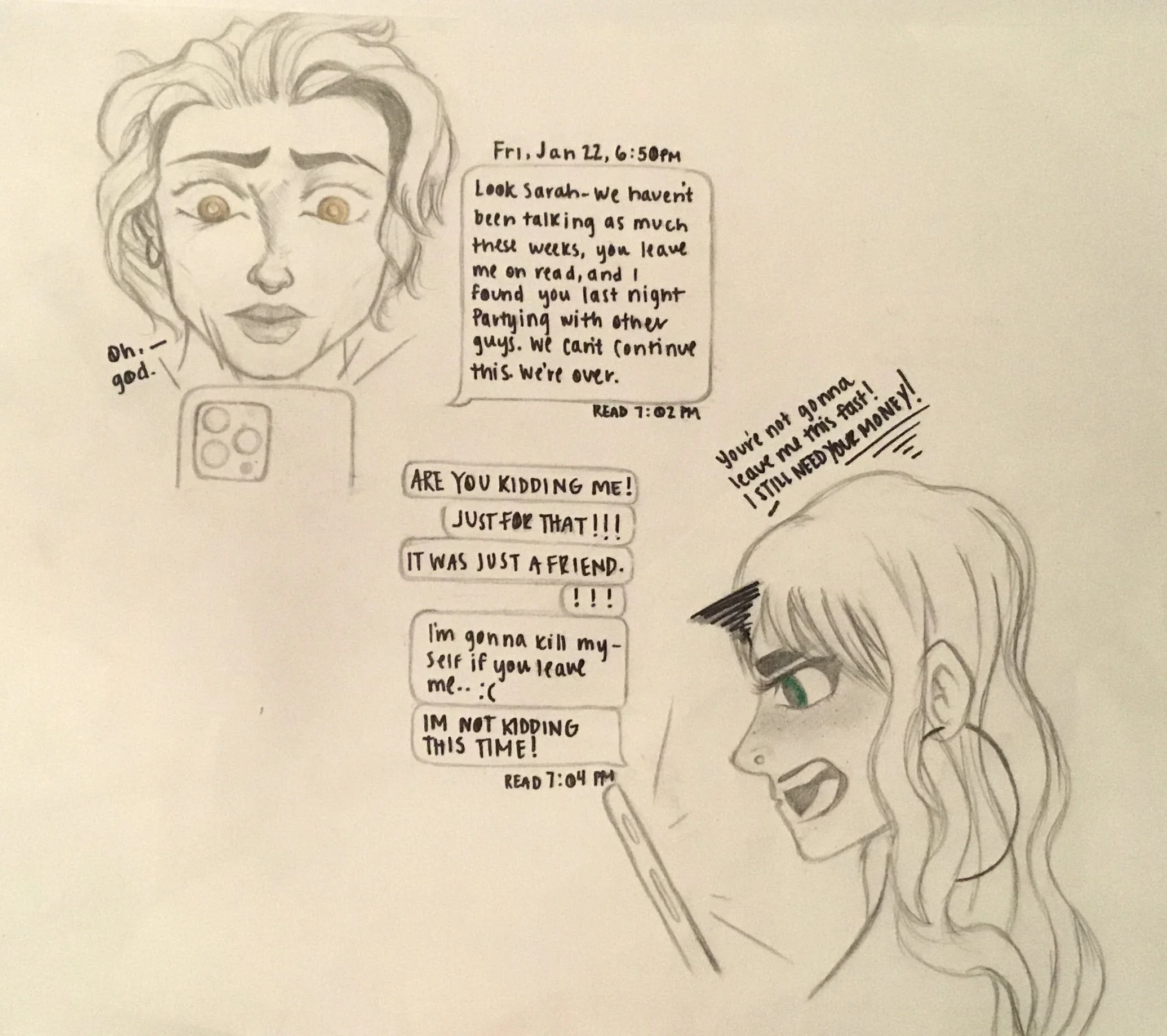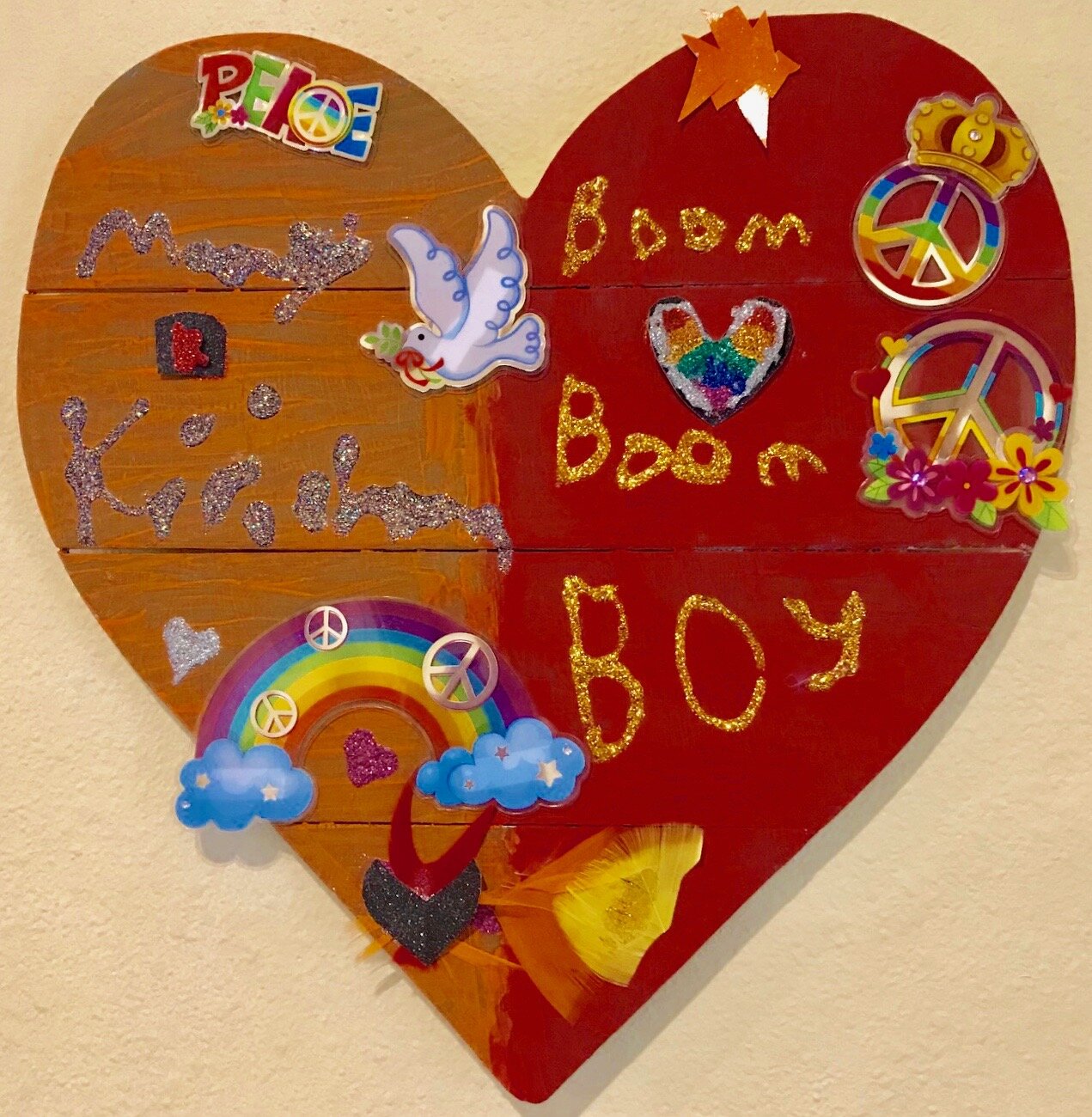Starting the Conversation: A Comprehensive Approach to Navigating Teen Relationships
This drawing, depicting manipulation via chat, was created by Fatima Munoz, a ninth-grader at Hood River High School.
February was Teen Dating Violence Action Month and this submission was submitted by HAVEN from Domestic and Sexual Violence to bring attention to the topic:
By Cassandra Chenoweth at The Empowerment Project
For a long time, older generations have worried about the nature of relationships in youth culture. Polarized opinions about teenage romance and difficult conversations about sexual healthcare for teens can often create a divide between adults and the youth in their lives.
If you are a parent or a professional working with teens, you might have concerns about the pace of their relationships or the behaviors of the role models they look up to. As awkward as these growing pains might be, understanding their perspectives about dating is crucial if we want to play a role in supporting their safety.
In other words, youth need to feel comfortable with our expectations of their relationships. When we do this, we can serve as a shoulder to cry on, a voice they can relate to and maybe even an advocate for their relationships’ health. If you are ready to start a conversation about healthy relationships with your teen, how can you invite them to open up?
The answer might be different depending on the teen and your relationship with them. One effective way to promote authentic communication is to open up with your own vulnerabilities. If appropriate, you might talk about a time that you got in trouble for a relationship your parents didn’t approve of. This could help them rationalize their fear and confirm that you can be trusted to approach for emotional support. You might even tell them about your best and worst relationship stories.
When we open up about our own imperfect experiences, we create space for others to verbalize theirs. Young people, who are new to the world of relationships, often benefit from a trusted adult who can help them identify whether or not various aspects of their relationships are consensual and equal.
Even young people who have been taught about relationship abuse can sometimes have trouble recognizing warning signs. If their friend or partner is being controlling, manipulative or overly dependent, it’s helpful to encourage teens to verbalize their experiences and support them through any actions they’re ready to take.
The Empowerment Project at HAVEN from Domestic and Sexual Violence works to prevent violence in Wasco, Sherman, Gilliam and Wheeler Counties. If you or your teen have questions about relationship health, our programming, or additional resources please contact Cassandra Chenoweth at (541) 980-1190 or cassie@haventhedalles.
This and the artwork above are from HAVEN’s relationship-oriented virtual youth art gallery.
The piece above was sent by two youth who are a part of the "What's Strong With You!" program, based in The Dalles. Their names are Catsey Kiltz and Vanessa Aldrich, and their art is titled "Anime Friendship"
This artwork is based on an anime show called, “My Hero Academia” It represents the relationship between two characters, Katsuki and Kirishima, who are best buds and have built a good relationship over time. The good thing about their relationship is that they have a really nice bond—they talk and listen to each other, calm each other, show respect, and really care about each other.


